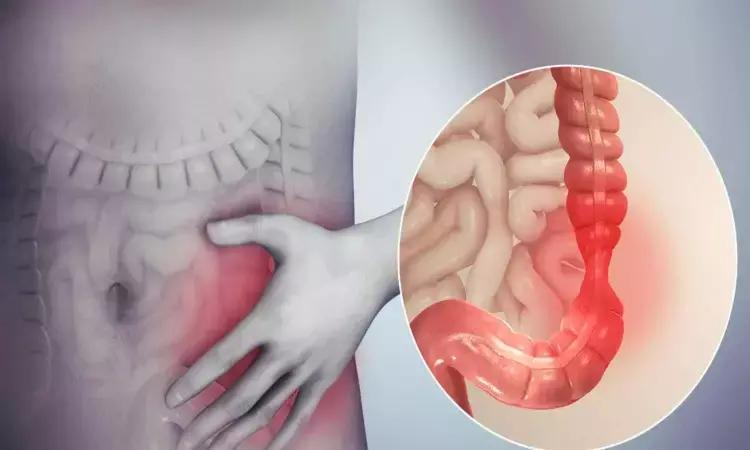- Home
- Medical news & Guidelines
- Anesthesiology
- Cardiology and CTVS
- Critical Care
- Dentistry
- Dermatology
- Diabetes and Endocrinology
- ENT
- Gastroenterology
- Medicine
- Nephrology
- Neurology
- Obstretics-Gynaecology
- Oncology
- Ophthalmology
- Orthopaedics
- Pediatrics-Neonatology
- Psychiatry
- Pulmonology
- Radiology
- Surgery
- Urology
- Laboratory Medicine
- Diet
- Nursing
- Paramedical
- Physiotherapy
- Health news
- Fact Check
- Bone Health Fact Check
- Brain Health Fact Check
- Cancer Related Fact Check
- Child Care Fact Check
- Dental and oral health fact check
- Diabetes and metabolic health fact check
- Diet and Nutrition Fact Check
- Eye and ENT Care Fact Check
- Fitness fact check
- Gut health fact check
- Heart health fact check
- Kidney health fact check
- Medical education fact check
- Men's health fact check
- Respiratory fact check
- Skin and hair care fact check
- Vaccine and Immunization fact check
- Women's health fact check
- AYUSH
- State News
- Andaman and Nicobar Islands
- Andhra Pradesh
- Arunachal Pradesh
- Assam
- Bihar
- Chandigarh
- Chattisgarh
- Dadra and Nagar Haveli
- Daman and Diu
- Delhi
- Goa
- Gujarat
- Haryana
- Himachal Pradesh
- Jammu & Kashmir
- Jharkhand
- Karnataka
- Kerala
- Ladakh
- Lakshadweep
- Madhya Pradesh
- Maharashtra
- Manipur
- Meghalaya
- Mizoram
- Nagaland
- Odisha
- Puducherry
- Punjab
- Rajasthan
- Sikkim
- Tamil Nadu
- Telangana
- Tripura
- Uttar Pradesh
- Uttrakhand
- West Bengal
- Medical Education
- Industry
IBS and Its Complications: Study Finds Obesity and Vitamin D Deficiency Widespread Among Patients

Sweden: A recent cross-sectional study has revealed that individuals with Irritable Bowel Syndrome (IBS) frequently struggle with overweight or obesity and exhibit low levels of vitamin D. The study sheds light on the prevalence of these conditions among IBS patients and their potential implications for overall health.
"A high burden of extraintestinal symptoms was linked to being overweight and having lower iron levels," the researchers wrote in BMC Gastroenterology.
Irritable Bowel Syndrome is a chronic gastrointestinal disorder characterized by symptoms such as abdominal pain, bloating, and altered bowel habits, with unknown etiology. Inadequate dietary intake and nutritional deficiencies, coupled with being overweight, have been noted to elevate the risk of developing IBS. Considering this, Bodil Roth and Bodil Ohlsson from Skåne University Hospital in Malmö, Sweden, aimed to compare weight and circulating levels of micronutrients in IBS compared with healthy controls.
For this purpose, the researchers conducted a cross-sectional study involving patients diagnosed with IBS and healthy volunteers. Participants were required to complete a dietary diary and fill out the Rome IV questionnaire, IBS-severity scoring system (IBS-SSS), and visual analog scale for IBS (VAS-IBS). They had their weight and height measured, and blood samples were collected for analysis.
The study assessed levels of C-reactive protein (CRP), cobalamin, folate, iron, total iron-binding capacity (TIBC), and 25-hydroxy (25-OH) vitamin D. Differences between groups were calculated, and a generalized linear model was used for regressions, with adjustments made for the false discovery rate (FDR).
The study led to the following findings:
- IBS patients (n = 260) were elder than controls (n = 50) (44.00 versus 37.85 years).
- After adjustment for age, both weight (β: 5.880; FDR = 0.020) and body mass index (BMI) (β: 2.02; FDR = 0.012) were higher in patients.
- Among IBS participants, 48.1% were overweight/obese compared with 26.0% in controls.
- Diarrhea-predominated IBS had the highest weight and BMI.
- CRP and cobalamin were higher in patients than controls, whereas folate was highest in controls.
- IBS patients had a lower intake of vegetables, dairy products, and cereals than controls.
- Despite 21.5% of IBS patients taking vitamin D supplements, 23.65% had vitamin D levels below 50 nmol/L, compared with 26.0% observed in the control group.
- Vitamin D levels were lower in overweight than in normal-weight IBS patients (60 nmol/L versus 65 nmol/L).
- Vitamin D correlated with cobalamin and folate but correlated inversely with TIBC and BMI. IBS patients had a high degree of gastrointestinal and extraintestinal symptoms, which were inversely associated with iron levels.
- Extraintestinal symptoms were associated with increased BMI.
The findings showed that IBS patients frequently presented with overweight or obesity and low vitamin D levels. This highlights the complex and multifaceted nature of IBS, including the potential roles of nutritional deficiencies and associated conditions.
"Further research is essential to explore these relationships in more depth, and longitudinal studies are needed to establish causative links. There is a need for increased awareness regarding the importance of healthy dietary habits. Treatment for IBS may benefit from incorporating strategies for weight management and addressing deficiencies in vitamins and minerals," the researchers concluded.
Reference:
Roth, B., Ohlsson, B. Overweight and vitamin D deficiency are common in patients with irritable bowel syndrome - a cross-sectional study. BMC Gastroenterol 24, 296 (2024). https://doi.org/10.1186/s12876-024-03373-x
Dr Kamal Kant Kohli-MBBS, DTCD- a chest specialist with more than 30 years of practice and a flair for writing clinical articles, Dr Kamal Kant Kohli joined Medical Dialogues as a Chief Editor of Medical News. Besides writing articles, as an editor, he proofreads and verifies all the medical content published on Medical Dialogues including those coming from journals, studies,medical conferences,guidelines etc. Email: drkohli@medicaldialogues.in. Contact no. 011-43720751


